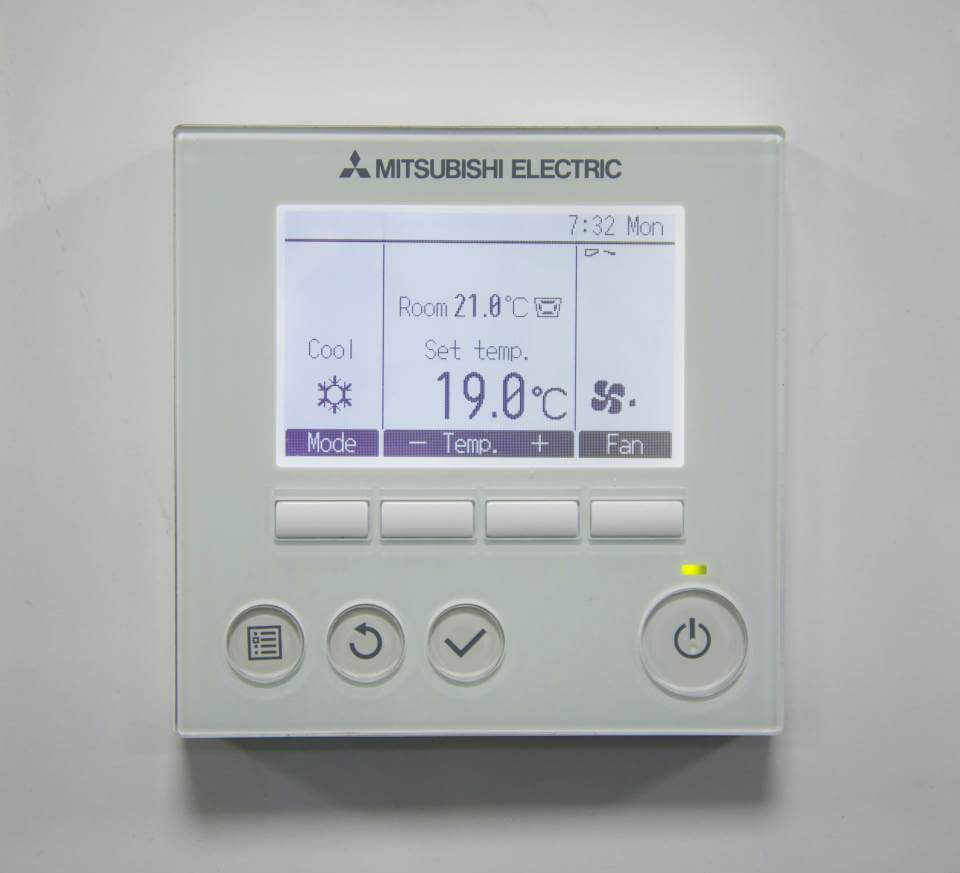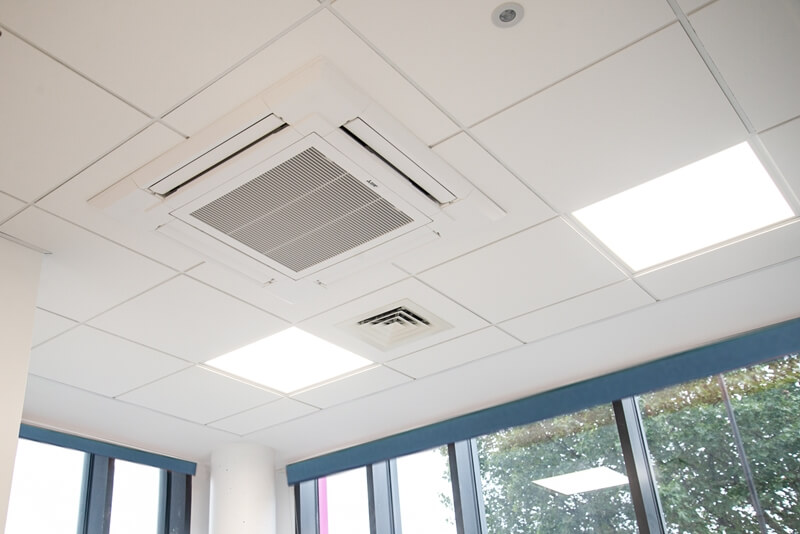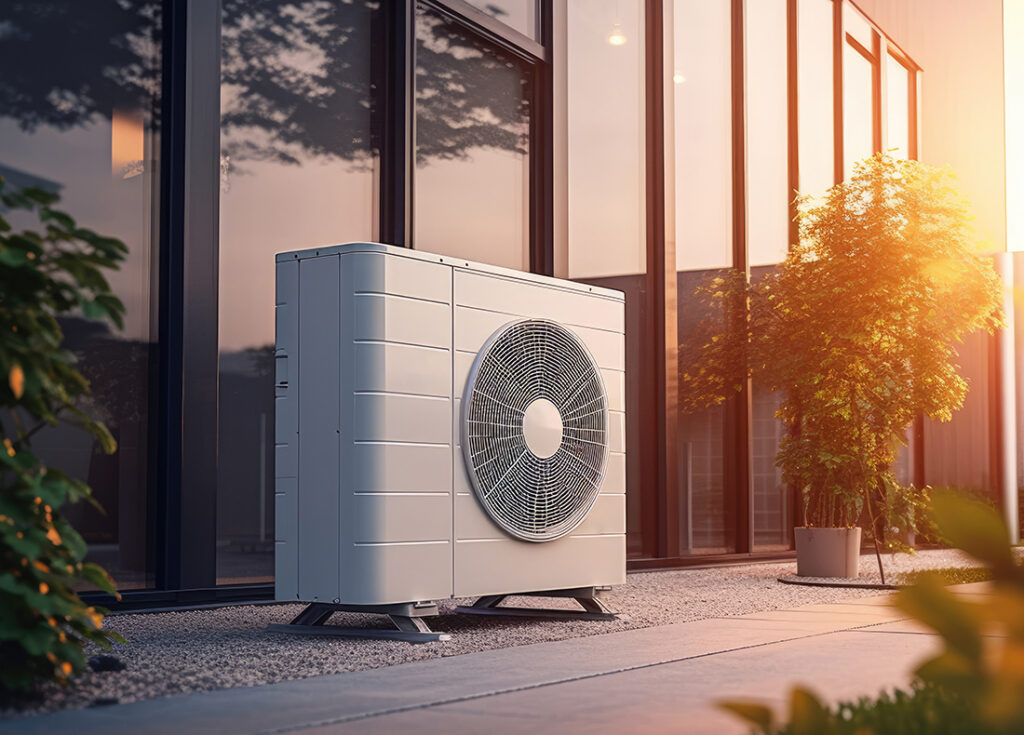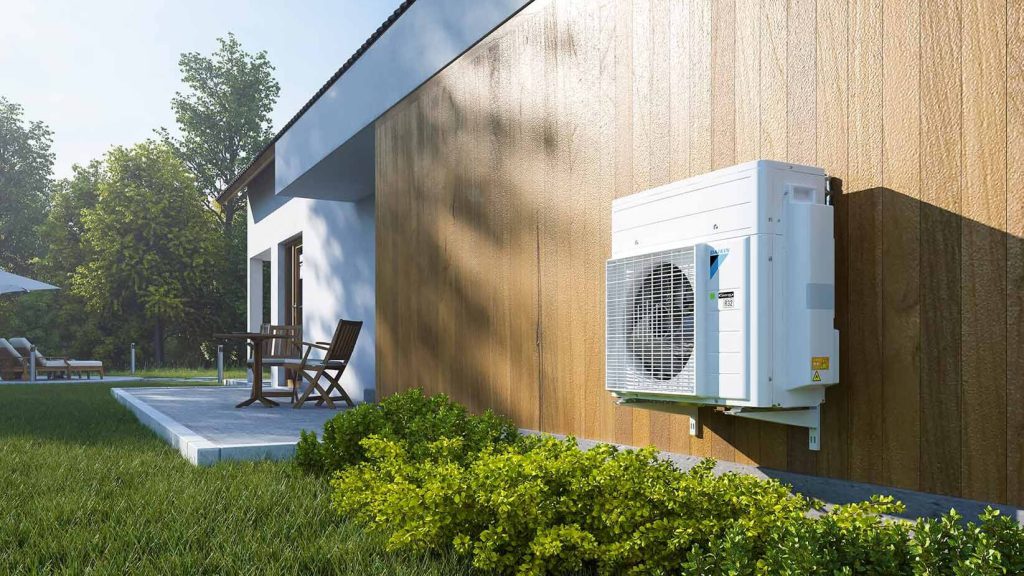Your Air Conditioning System and Indoor Air Pollution
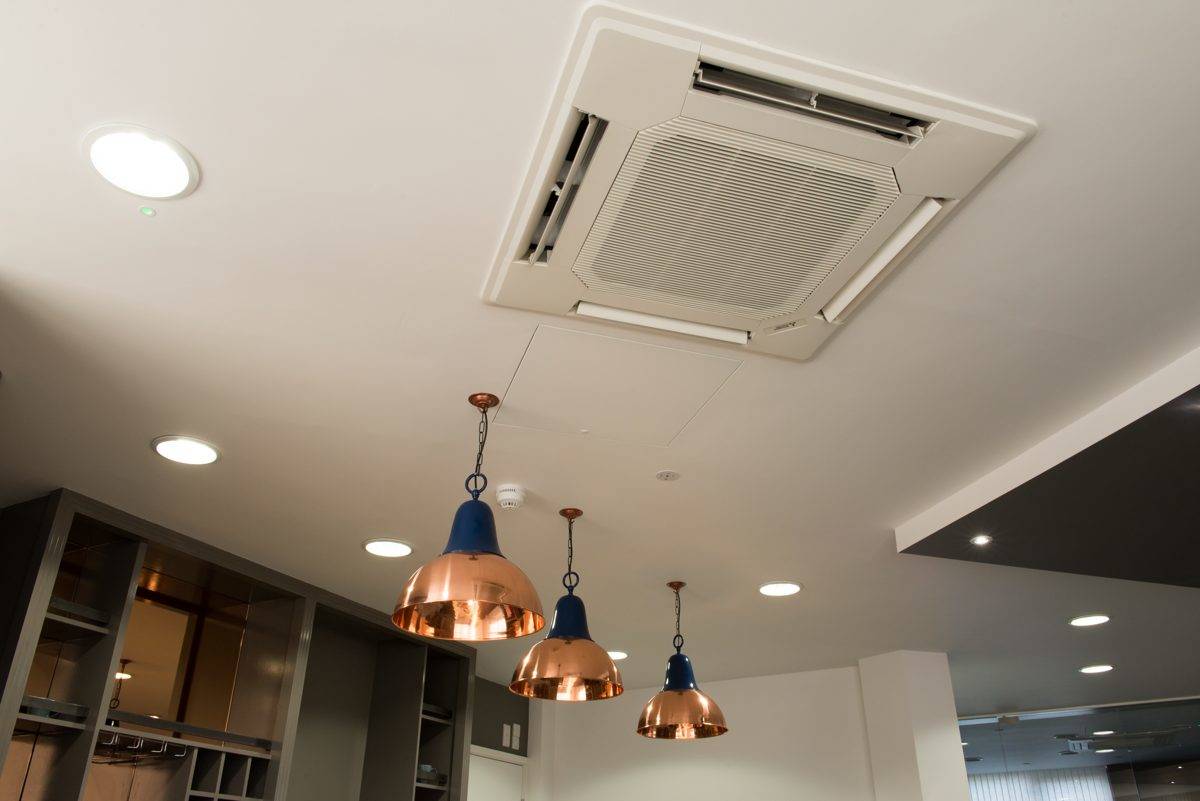
Estimated reading time 6 minutes
When we talk about air pollution we think of the burning of fossil fuels, car exhaust fumes, aircraft chemical trails and factory emissions. We also tend to think of air pollution as being “outside” but have you ever considered that your business premises can suffer from indoor air pollution and how you can reduce or eliminate it through commercial air conditioning?
The first question many people ask is, what are indoor air pollutants and why should I care about them? If this is something you’ve been wondering about read on to find out more.
What Is Indoor Air Pollution?
Indoor air pollution can arise from a number of different sources. Some common causes of indoor air pollution are:
Dust
We all know just how invasive dust can be if cleaning isn’t carried out on a regular basis, if you’ve had building work carried out, or if you’re located in an area where building work is taking place.
Dust can form airborne particles known as “motes” which are carried in the air. Airborne dust can pose a health threat. The type, size and quantity of the dust particles determines how much of a risk it is.
Dust particles that can be inhaled can cause a variety of symptoms including sneezing, coughing, eye irritation, hayfever and asthma attacks. For anyone with respiratory conditions - such as asthma, chronic obstructive airways disease (COAD) or emphysema - small amounts of dust can make these health conditions a great deal worse.
Pollen
Pollen can also be an indoor air pollutant. When windows and doors are left open pollen can make its way into your office building. The pollen season doesn’t just occur in the spring and summer months as many people think, it starts as early as January and ends as late as November, usually peaking in April and May. That’s 11 months of the year!
Lower pollen counts occur in urban areas however pollen can combine with air pollutants to bring on hay fever symptoms.
The very nature of pollen is designed to be carried in the air to enable grasses, trees, flowers (and weeds) to reproduce. As pollen is very fine it can be carried great distances. Pollen is considered to be one of the main factors in causing allergic reactions.
Mould and Mould Spores
Without an air conditioning system many buildings can suffer from excess moisture which can create a breeding ground for mould and mould spores (also known as mildew). Mould is a natural fungal growth which plays a vital role in nature, in breaking down dead organic matter. However it isn’t something you want to find or encourage to grow in your office, restaurant or gym.
Mould reproduces through spores. These spores are small enough that they are invisible to the naked eye and can float round in the air and attach themselves or spread to other surfaces. Given the right conditions spores can form new mould colonies.
Mould spores can cause a variety of symptoms including eye irritation, nasal issues, itchiness and respiratory problems.
Cleaning Products
The products we use to clean commercial buildings can themselves result in air pollutants. Cleaning agents can contain chemicals called volatile organic compounds (VOCs); others may contain bleach or ammonia.
A study published in the American Chemical Society Environmental Science and Technology journal found that cleaning products which contain bleach emit chlorine containing compounds like hypochlorous acid (HOCI) and chlorine gas (Cl2) which can accumulate in poorly ventilated areas to relatively high levels. These gases can also react with other chemicals commonly found in some cleaning products such as limonene (a chemical found in the peels of citrus fruits and in other plants), one of the most common indoor volatile organic compounds (VOCs), which is added to many products such as cleaning products, air-fresheners or fragrances.
Many of these pollutants have been linked to a number of health effects including headaches, nausea and respiratory problems.
Reducing Indoor Air Pollution
Given that indoor air is often 10 times more polluted than outdoor air and we spend about 90% of our time indoors with the majority of that time at work, in shops, restaurants or at the gym, the levels of indoor air pollution can be critical to our health.
As the British Lung Foundation explains “Everyone is at risk from indoor air pollution. If you’ve got COPD, asthma, bronchiectasis or any other lung condition, you’re much more likely to be affected by poor air quality.”
Clearly it’s important to reduce indoor air pollution as much as we can. So how can this be achieved?
In a previous article where we looked at what air conditioning does, debunking the myth that air conditioning simply keeps a room or building cool. One area we covered briefly was that air conditioning plays a vital role in keeping indoor air clean by filtering the air and removing particulates, dust, mould spores and germs. As long as your air conditioning system is well maintained then your air conditioner should provide this invaluable service, helping to decrease the allergens and irritants in the air and reducing the risk of indoor air pollution health related illnesses.
Air Conditioning Maintenance
In order to ensure your air conditioning system is performing at its best it must be regularly maintained. We’ve written a number of articles on the tasks that need to be carried out to ensure your system is working as it should e.g. Is Your Air Conditioning Summer Ready and Winter Is Coming – Is Your HVAC Up to the Job? If you don’t have the time to maintain your air conditioning system or would simply prefer a professional to take care of the maintenance then there is a solution.
Planned Preventative Maintenance (PPM)
Synecore are M&E Contractors who offer comprehensive Planned Preventative Maintenance (PPM) contracts for your air conditioning system. These contracts are tailored to suit your business and the size of your premises. A PPM contract will give you all year round peace of mind. Included in the PPM package is our 24/7 call out, compliancy with F-gas regulations and TM44 certification.
To find out how Synecore can help get in touch with our head office in Sittingbourne, Kent for more information. Call 01795 509509 or email us at sales@synecore.co.uk.
